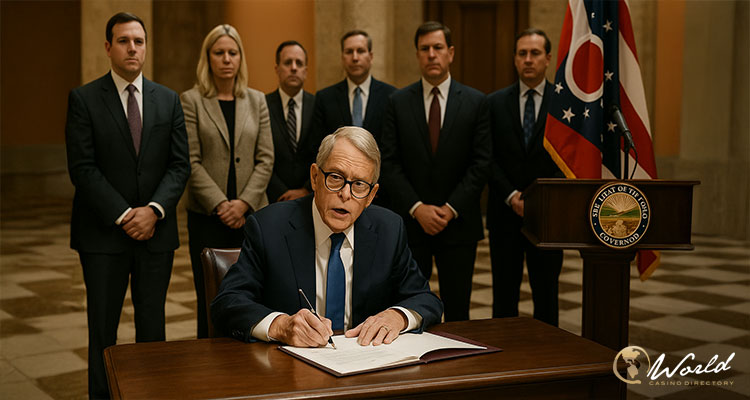Ohio Gov. Mike DeWine is openly reassessing his decision to sign the 2021 measure that opened the door to legal sports wagering across the state. What he once supported as a structured and regulated expansion of gambling is now something he describes with clear regret, following a series of sports betting controversies that have placed Ohio in the national spotlight. His comments come amid multiple investigations, including the high-profile indictments of Cleveland Guardians pitchers Luis Ortiz and Emmanuel Clase, accused of rigging pitches for gamblers — a case that has drawn national attention to the risks surrounding micro-betting.
Prop Betting Limits and the Push for Broader Reform
DeWine said that, with the benefit of hindsight, he would have preferred a different course altogether. “Look, we’ve always had gambling, we’re always going to have gambling,” he said. “But just the power of these companies and the deep, deep, deep pockets they have to advertise and do everything they can to get someone to place that bet is really different once you have legalization of them.” That change, he argues, has created an environment far more difficult to manage than lawmakers anticipated. In another moment of candor, he added, “Ohio shouldn’t have done it.”
While sports betting became legal for adults 21 and older across online platforms, casinos, racinos and kiosks, DeWine has spent much of the last two years seeking to restrict parts of the industry he now views as posing unique risks. His stance gained urgency after betting-related harassment involving the University of Dayton basketball team and subsequent NCAA conversations. Those discussions paved the way for removing collegiate prop bets from the list of permitted wagers.
The governor also played a central role in the negotiations with Major League Baseball that resulted in capping pitch-related bets at $200 and excluding them from parlays. MLB Commissioner Rob Manfred publicly credited him for raising the alarm, saying, “Gov. DeWine really did a huge service, I think — to us, certainly, I can’t speak for any of the other sports — in terms of kind of bringing forward the need to do something in this area.”
These actions have not resolved his concerns. DeWine maintains that the risks extend well beyond baseball and remain tied to how micro-bets are structured. “It needs to be holistic, it needs to be universal,” he said, warning that leagues ignoring these concerns were “just playing with fire.”
Political Pressure, Industry Influence and Lingering Regrets
Despite his dissatisfaction, DeWine acknowledges that a repeal of sports betting is politically unattainable. “There’s not the votes for that. I can count,” he told the Associated Press. Instead, he has focused on influencing leagues and collaborating with regulators.
Campaign finance records show strong industry interest in Ohio politics since legalization, with contributions flowing from casino operators, sportsbooks, gaming manufacturers and affiliated lobbyists. While some lawmakers, such as state Rep. Brian Stewart, continue to support prop betting — arguing it is a popular activity and contributes to state revenue — DeWine remains convinced that significant reform is needed.
His concerns trace back to early 2023, when threats toward student athletes first surfaced. Those reports led to conversations with NCAA President Charlie Baker and ultimately to removing certain college wagers from Ohio’s betting menu. When the Guardians case later unfolded, he urged Manfred to consider a broader response, noting his preference would have been to ban micro-prop bets entirely.
As DeWine approaches the end of his term, he continues to warn that the integrity of sports is at risk. “These sports are playing with dynamite here and the integrity of the sports is at stake,” he said, emphasizing his commitment to advocating for stronger protections even without legislative backing.



